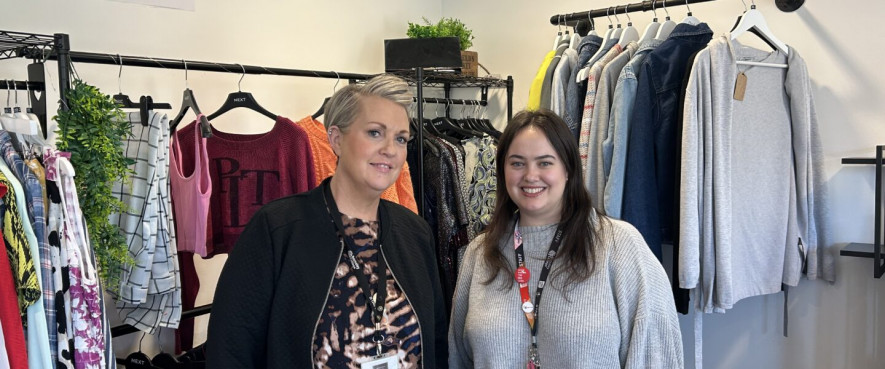A VINTAGE clothing shop is already making an impact having saved close to 1,000 items from going to landfill.
The team at Barnsley College’s Reloved Boutique are also sharing their approach with other educational institutions around the country.
The boutique, based at the Old Mill Lane campus, sells pre-loved clothing while offering work experience opportunities to students who have additional and complex needs in the college’s Learning for Living and Work (LfLW) department.
It also provides an opportunity to educate both students and visitors on second-hand clothing, its positive environmental impact and the implications for the wider fashion industry.
Students in LfLW have launched an online Vinted store alongside the physical shop, through which they buy and sell items. All items sold this academic year will raise money for chosen charities, Barnsley Hospice and Mencap.
Head of Sustainability, Sasha Beswick, and Head of the LfLW department, Nicola Thomson-Dewey, spoke about Reloved at the most recent Education and Training Foundation community meeting – an opportunity for educators to share their approaches and experiences around embedding sustainability in education to peers.
Other attendees hailed Reloved as ‘inspiring’ and ‘thoughtful’, with one adding: “Fabulous ideas here, love this project and its many arms. Your students are clearly having a fabulous, all-round experience.”
The unique shop has also been featured in the Sustainability Newsletter distributed by Jisc, the national not-for-profit organisation that provides IT and digital support to further and higher education and public sector organisations.
Nicola said: “Reloved Boutique has been a great success and has quickly become really useful both as an educational tool and as a viable business – empowering our students with real-world skills while giving clothes a second life.”
Sasha added: “Reloved Boutique is a powerful platform for spreading positive messages around sustainability, and students are learning a lot about the growing movement towards choosing ‘slow fashion’ over fast fashion, the environmental impacts of textile waste, and even the business aspects of buying and selling items online.”


















